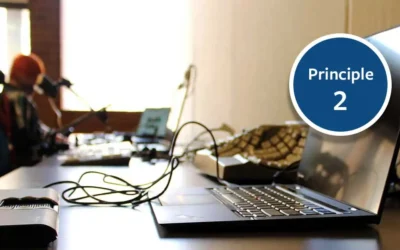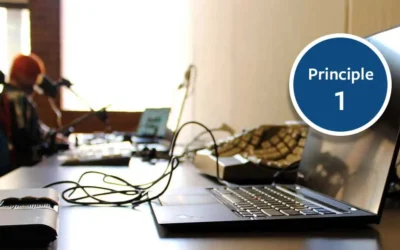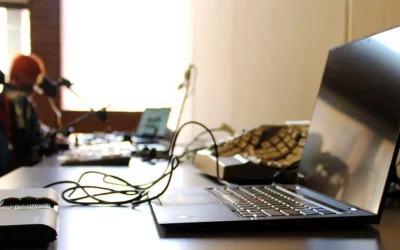Museum Grant Application: What Happens if You Fail?

Rachael Cristine Woody
Failing to win a grant your museum applied for can feel very personal. It’s natural to have feelings of sadness and frustration, and wonder what went wrong. This is a post to help you move past the rejection letter and use failure to strengthen future applications.
Here are my top tips for turning grant failure to your advantage:
1. Listen into the review session, if possible.
Some grant agencies offer listen-in sessions when grant applications are reviewed. These take place during the review process and are often recorded. The review session will include the presentation of the grant, the reviewers commenting on the strengths and weaknesses of the application, and raising any questions or concerns they have. The review is typically listen-only, so the museum isn’t able to answer or clarify the museum’s application during this process, but it is incredibly valuable to hear how the application is interpreted by professional reviewers. I recommend you listen in to other museum applications too, as you can learn just as much from the review of a peer’s application. Check-in with the granting agency to see if listen-in sessions are a part of their process and if they offer recordings.
2. It may not have anything to do with you.
Failing to receive a grant the museum’s worked very hard on can cause staff to wonder if that particular grant was even right for them. It is important to make sure the grants you apply for are appropriate and applied for correctly. However, I’d like to point out that sometimes it has nothing to do with the museum’s application. Grants can be highly competitive, and while the museum’s applications met all the criteria and made a compelling case, there’s not enough money to go to every worthy museum applicant. Another likely scenario is that the granting agency has decided to focus on a niche area of their mission, which is not something they typically broadcast. If this is the case, your application could very well fit their needs next year. A phone call can help clarify this.
3. Reach out and speak with someone.
Calling to ask for feedback is a critical part of successfully navigating the failure process. Granting agencies will note which museums follow up for feedback regarding their rejected applications. Much like following up on an unsuccessful job interview, museums should request feedback granting agencies on how to improve. This signals to the agencies how sincere and committed the museum is in seeking an award from that granting agency. A phone conversation also allows staff from the agency to provide candid feedback and suggestions. Takes notes on the feedback as it can help with any future applications the museum writes and implement what feels appropriate.
4. Request reviewer notes.
If there isn’t a recording of the application review session, and even if you’re able to speak with someone, requesting the reviewer notes is a vital piece of learning how to make the museum’s future grant applications stronger. Granting agencies should always have review notes. Some may share all of their reviewer notes with full transparency, others may only be able to provide a summary. My recommendation is to ask for whatever form of notes you can get. Sometimes the notes verify the museum application hit all the marks and helps to validate your application didn’t fit their focus for that year (see tip #2). Other times the critiques can offer invaluable insight into how you can make the museum application even stronger.
5. Take those notes and apply it to your draft.
Take all of the feedback you’ve acquired, assess it to see if it feels valid, and figure out how you can apply the information to future grant applications. I recommend having fellow staff members review the feedback and assist in the assessment process. Once a new draft is written, check back in with previous grant critiques to ensure known mistakes aren’t being made.
6. Resubmit!
It’s time to get back out there! Grant writing is a vulnerable process, but it’s a process that museums can get better at with practice. Harnessing a past failure to become a stronger applicant is a smart move for museums to make—one that can greatly increase the chances of future grant applications.
So, turn failure into an advantage and get back on the grant writing horse!

Rachael Cristine Woody
Similar Posts
Museum Collections Online with Accessibility Principle 2: Operable
Compliance with WCAG Version 2.1 Principle 2: Operable
Museum Collections Online with Accessibility Principle 1: Perceivable
Compliance with WCAG Version 2.1 Principle 1: Perceivable, affecting information published from museum CMS to an online portal; expert guidance
Accessibility Standards for Museum Collections Online
A museum’s compliance with the ADA Title II 2024 update has benefits for its online content and for the museum’s community of users.
Museum TrendsWatch 2024: Digital Twins and Doom Loops & Combatting the Loneliness Crisis
Digital Twins is the construction of a digital surrogate for a person, place, or thing—one of several new concepts and trends in the museum sector.



